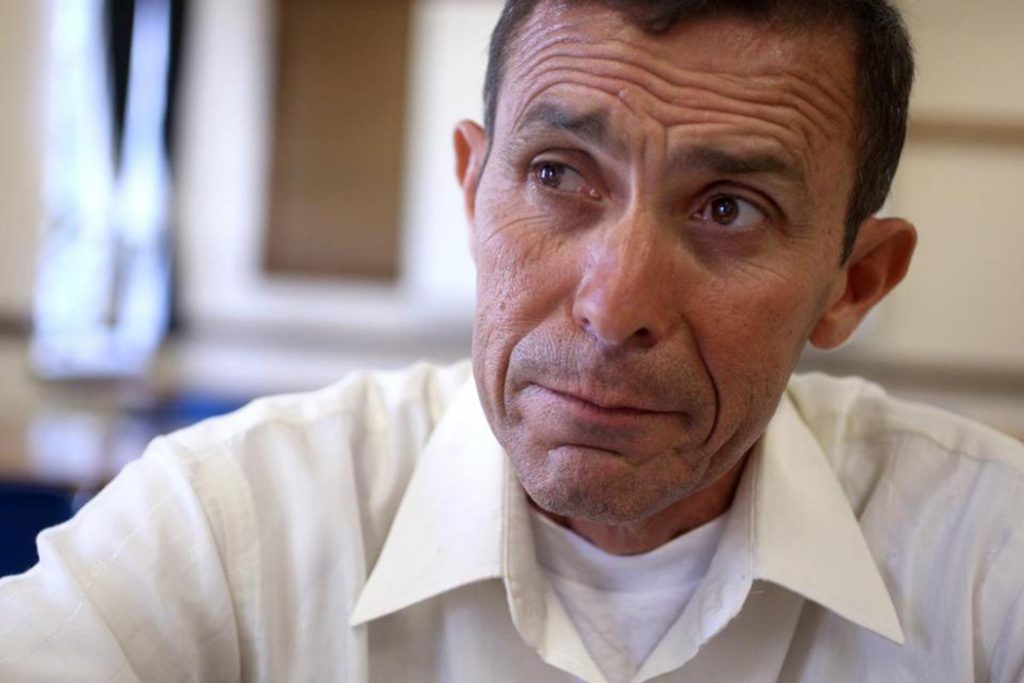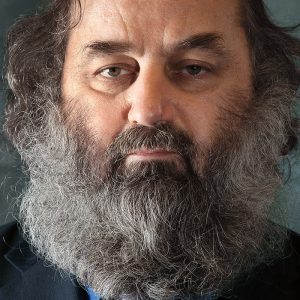Boston College Law School Innocence Program externs Jennifer Henricks ’15 and Rita Muse ’15 played a key role representing Victor Rosario in his quest for exoneration for arson and murder convictions stemming from a 1982 Lowell fire that killed 8 people–convictions overturned on Monday after Rosario had spent 32 years in prison. Middlesex Superior Court Judge Kathe M. Tuttman ruled that new evidence had resulted in real “doubt on the justice of the convictions.” The case received front-page coverage in the Boston Globe (see story). Rosario was released on bail today over the objection of the Middlesex District Attorney’s office, which is appealing the judge’s ruling vacating Rosario’s convictions.
During his time in prison, Rosario got married, became an ordained minister, and ran several marathons inside the prison yard. He is now on his way to his wife’s home for the first time as a free man.
Associate Clinical Law Professor Sharon Beckman arranged the externship enabling Henricks and Muse to work closely with Attorney Lisa Kavanaugh, who directs the Innocence Program for the Committee for Public Counsel Services and represented Rosario. “Jennifer and Rita were invaluable to me,” Kavanaugh said, who pointed out that BC Law grad Samantha Shusterman ’13 also contributed to the case earlier on. “They reviewed transcripts, drafted direct examination questions, and helped prepare visual aids to more effectively present the complex scientific issues in the case. On a personal level, they were a total pleasure to work with, bringing not only their minds but also their hearts to this incredible case. I am thrilled to have developed such a close and mutually beneficial relationship between the BC Innocence Clinic and the CPCS Innocence Program.”
“It is amazing that BC Law students had the opportunity to work on this case at this critical time,” said Beckman, who directs the BC Innocence Program and co-directs the Criminal Justice Clinic. “For a 2nd-year law student to be able to say she helped vacate the conviction of man who has served 32 years in prison for a crime he did not commit is really remarkable.”
While studying the causes of wrongful convictions in Beckman’s Wrongful Convictions seminar, Henricks and Muse helped Kavanaugh prove in a March evidentiary hearing that “a perfect storm” of causes applied to Rosario’s case, including the prosecution’s reliance on “junk” arson science, a false confession, and ineffective representation by trial counsel. Henrick’s work last semester focused on advances in arson science that undermined the assumptions made by prosecution investigators at trial, while Muse helped prove that statements elicited from Rosario during his 1982 interrogation were involuntary because he was suffering from delirium tremens at the time. The impact of their work is evident in Judge Tuttman’s ruling that “envisioning a trial that involves the exclusion of the defendant’s confession in combination with the admission of the newly discovered fire science evidence casts even greater doubt on the justice of [Rosario’s] convictions.”
“As a child I learned firsthand that wrongful convictions are a very real part of the American Criminal Justice system,” Muse said. “I applied to Boston College hoping that someday I would be able to change someone’s life. I never imagined that as a student I would be able to work directly on an innocence case–some attorneys will never have an experience like this in their professional career…both Lisa Kavanaugh and Victor Rosario exemplify in their very different roles the power of perseverance, dedication and faith. They are my role models, both professionally and personally. I’ve always known I wanted to do justice, now I know I can.”
Added Henricks: “It’s hard to put into words how incredibly transformative this experience was. Working with Lisa on this case has completely changed my view of the justice system and given me a unique perspective on what it means to pursue justice that I will carry with me throughout my career as an attorney. I’m completely overwhelmed with excitement and joy that Victor has finally found the justice he has been seeking.”
BC Law’s Innocence Program offers students the opportunity to study the problem of wrongful convictions while at the same time working in a practice setting focused on preventing or remedying wrongful convictions. Students can participate in either an in-house Innocence Clinic or in externship placements. Assignments at the placement may include case analysis and screening, factual investigation, forensic research and investigation, post-conviction litigation, participation in judicial hearings, development of best practices for preventing erroneous convictions, and policy development.
Update: The Boston Globe, on May 3, 2023, reported that Rosario will receive a $13 million settlement from city of Lowell.
Victor Rosario photograph courtesy the Boston Globe.



